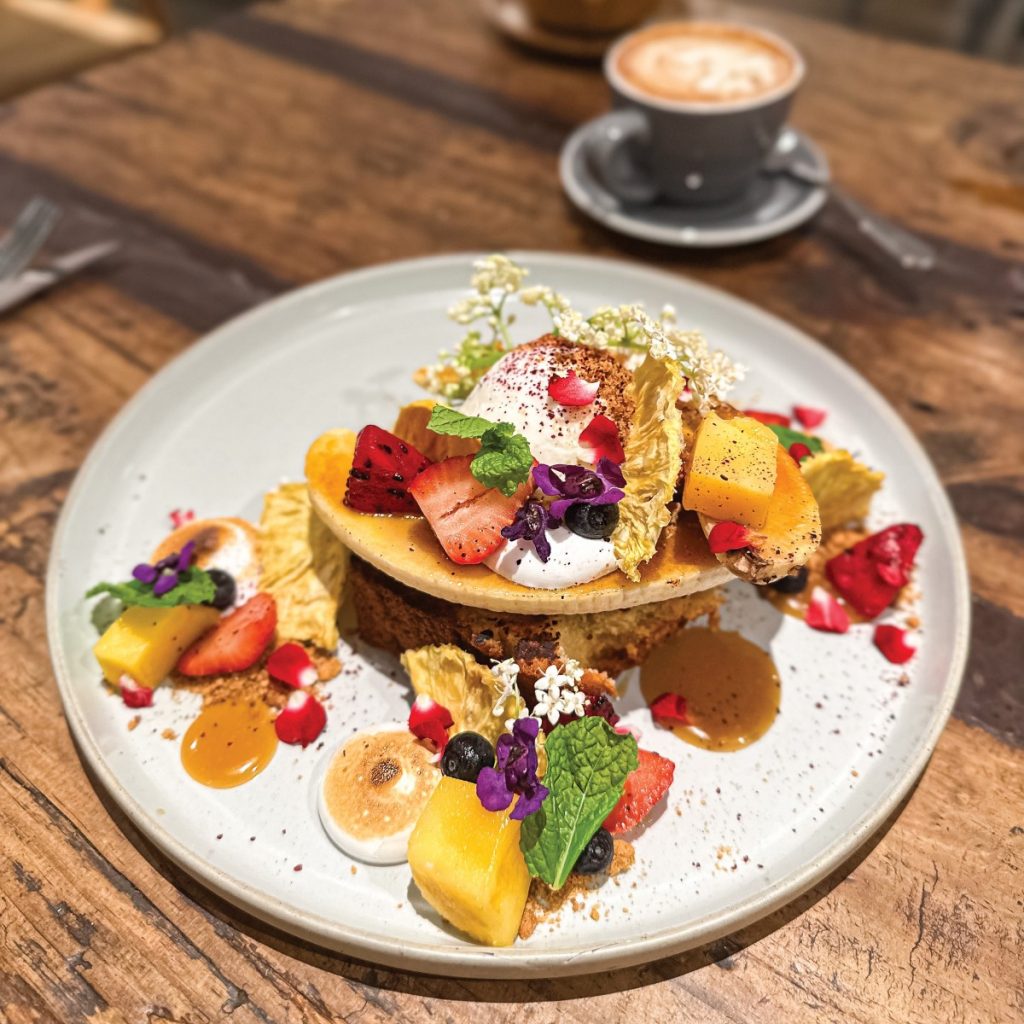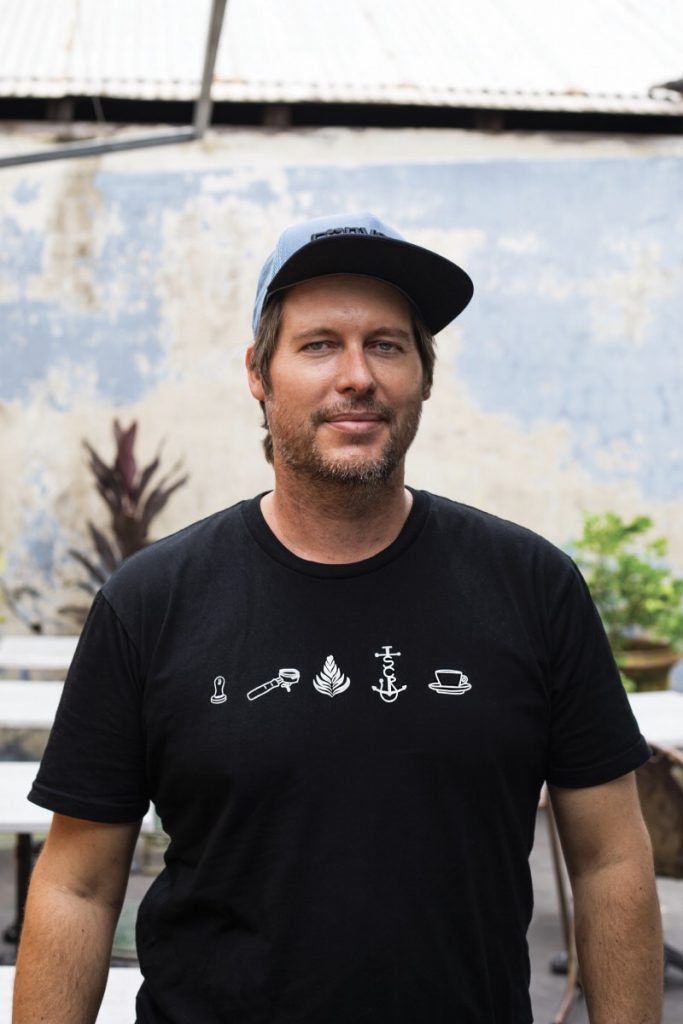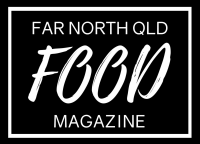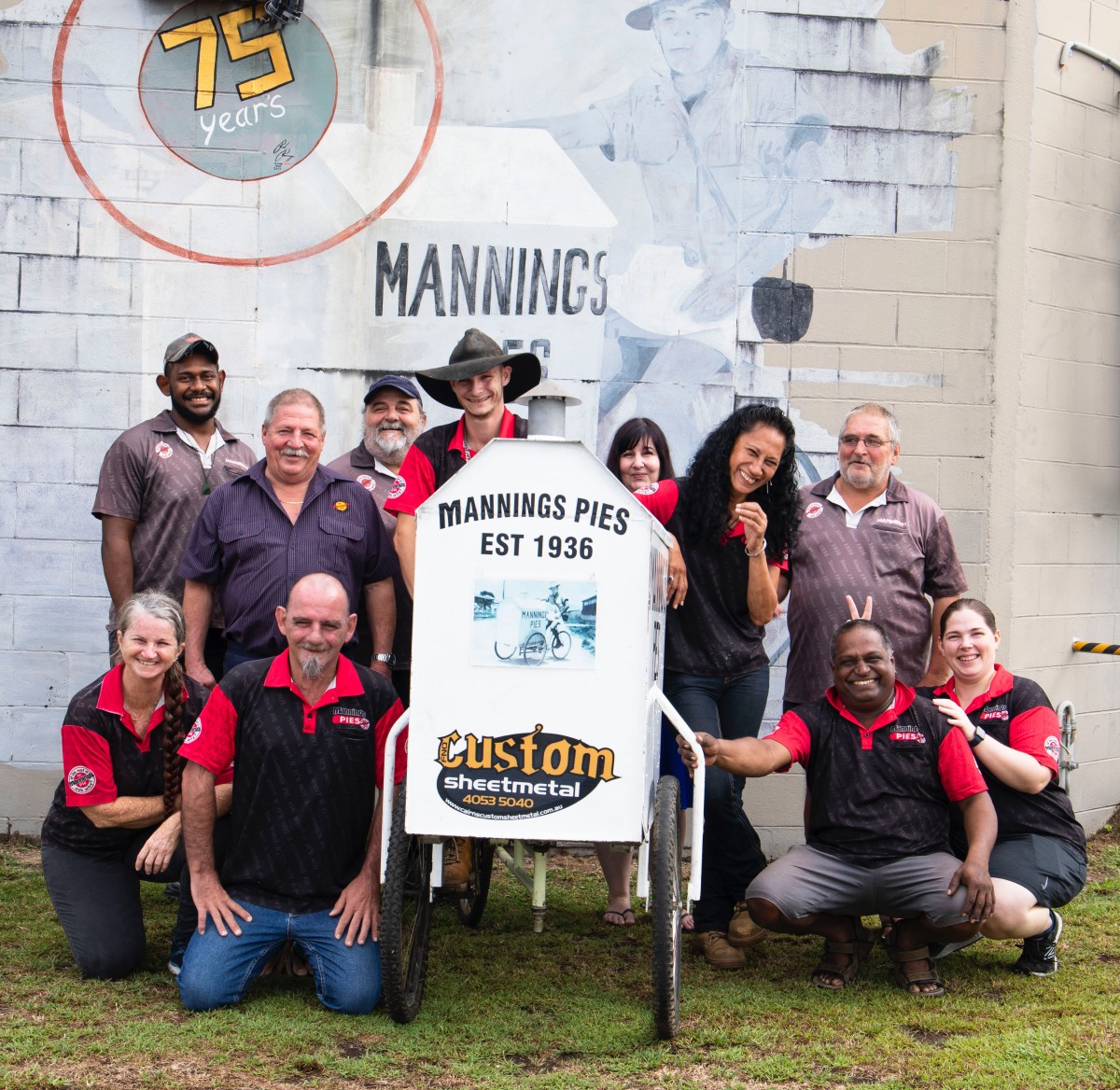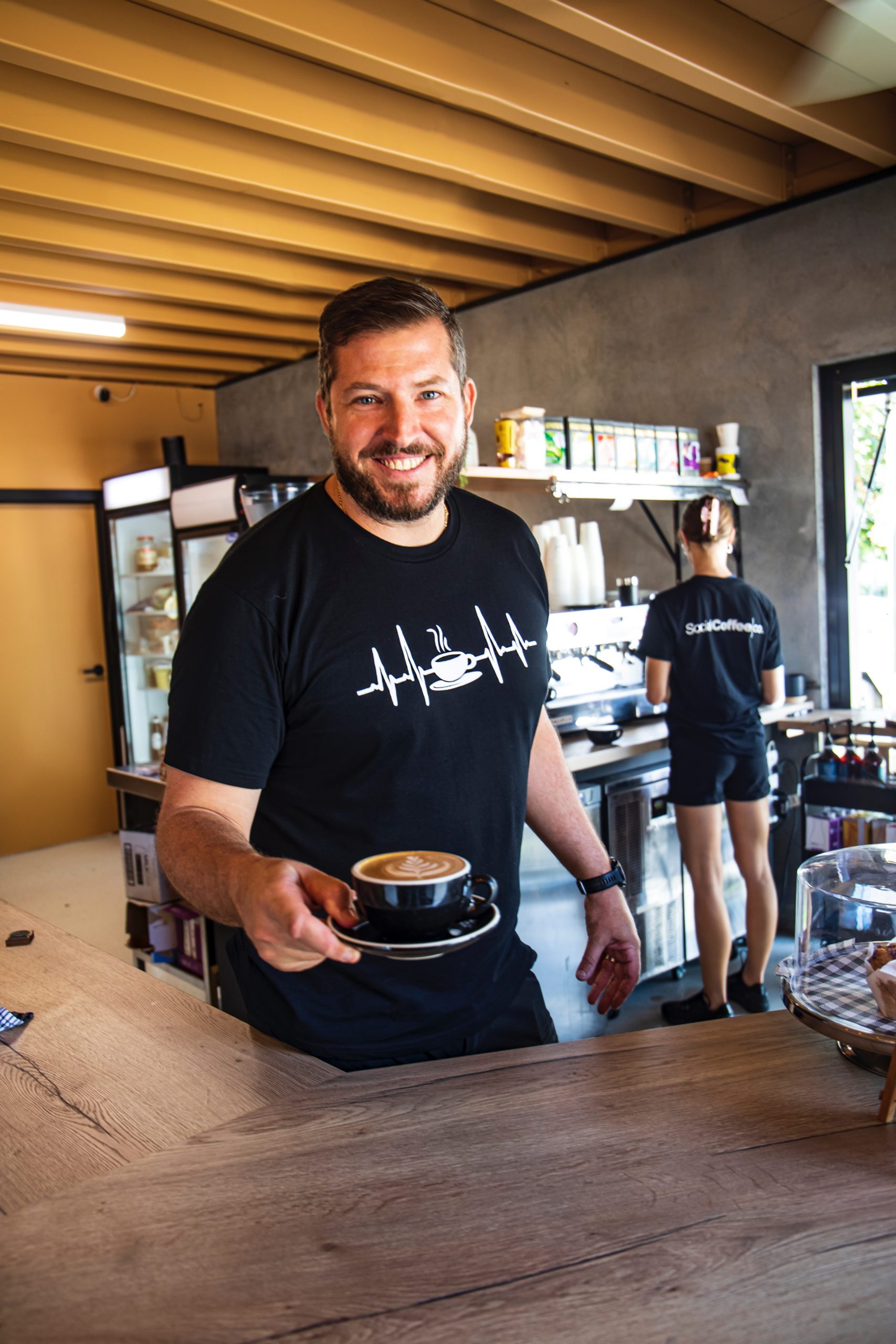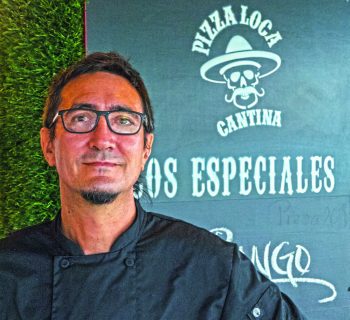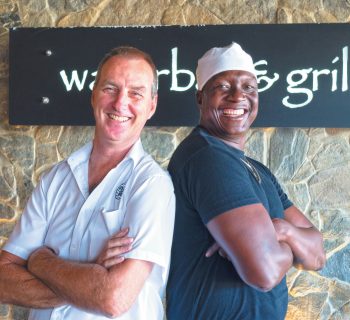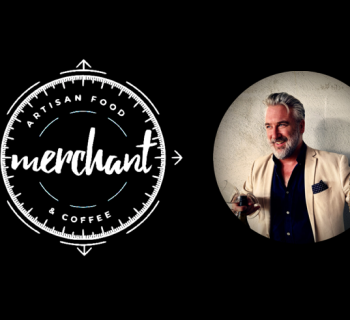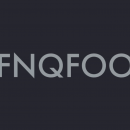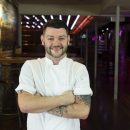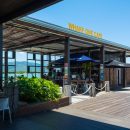From Back Street to Gourmet
Caffiend, Guyala Cafe, Newell Street Cafe and the Tattooed Sailor Coffee Roasters.
Oliver James, known in the industry as Olly, is an impressive fellow: tidy, neat, cultivated and softly spoken, but not unassuming. He speaks with quiet, measured self-assurance that captivates the listener. This is not the default for the average hospitality owner, if anything it is the antithesis. Renowned across the region as one of the primary instigators of local cafe culture, he first arrived in the public consciousness with his whimsically named Caffiend, then established in the graffiti-mural-covered backstreet laneway just off Cairns’ busy Grafton Street.
As Olly explains his personal journey, it is easy to see how this has mapped over to his professional life. From a young age he has been immersed in food, art and the movement of travel, all of which seemed to have combined to create his business ethos and ongoing fascination with food and drink.
“My dad opened a restaurant when I was nine. He was an amazing cook. It was based on a French country weekend style restaurant,” says Olly.
These ‘table d'hote’ traditional style restaurants are often in people’s houses and offer ingredients grown on site or from the local community.
“I grew up eating whole foods - fresh vegetables pulled from the garden, and pork and rabbit terrines that we made. As a nine-year-old, these were formative years and I found a love for food, reinforced by later travels as a teen across Europe.
“This spoiled me a lot with food, and we had a coffee machine. I used to love getting on the machine, it was an old italian style lever machine, I made coffees for customers,” Olly says.
“I kinda got that the idea of giving good food was exciting, people were really excited to come to the restaurant.
“Looking back at that time growing up, even with all the businesses I have had and the travelling I have done, I realise it was a very unique restaurant, even for today, in Australia.
“The connection between the menu and the locally grown and seasonal food is still something to strive for and even now, the top restaurants are fine dining versions of that, being really produce driven with gardens on site, and that idea of that European French kitchen garden,” he says.
His father, not only a great cook, was also a prolific artist and in Olly's own words a ‘Prolific Dude’. Olly spent every third weekend at the restaurant with his father after his parents had separated. His mother moved up here and his bond with the Far North was sealed as he finished schooling at Atherton State High. The influence of those formative years spent in hospitality and the artistic and dynamic nature of Olly's father is something that can easily be identified with how he approaches the industry today.
Like many provincial youngsters, Olly made the choice to flee the small town vibe in search of the bright lights and big city adventure.
“Even then I knew enough about the world to realise that Atherton was a tiny town, and moved to Sydney, and lived there for the next few years. In fact, I have spent the last two decades between Cairns and Sydney, pretty much back and forth,” Olly says.
“One of my favourite things about living in Cairns is the airport, we have such easy access to elsewhere, if and when we might want it. We don't need that massive population to support lots of crazy fancy restaurants, the affordability and accessibility of incredible restaurants is only a short plane ride away.”
Olly's first venture in Cairns was Caffiend, in 2009, sitting as it did in the laneway and then moving to its now familiar location on Grafton St. This was highly successful and led to its sale in 2017. Olly took a couple of years out to travel and ‘consult’ with friends out of state and in Europe, helping to open and launch other dining outlets.
“I didn't want to open another cafe in Cairns after I had sold Cafiend, I thought that doing that would stifle my own growth and I needed to look at other projects. But it kept coming up, so I accepted that if a certain set of criteria were met I would consider it.
“I have this idea that if you put an idea out in the world which has some pre-conditions or constraints, you won't settle for less than that, and if it does occur, it's meant to be. It also stops you jumping at any opportunity that presents itself. If the opportunity doesn't meet the criteria and you take it, you spend your time fighting whatever the inadequacy. I see so many businesses struggling because they took up an opportunity without meeting their own basic criteria.”
It was this process that led to opening Guyala on the Esplanade. Although very much a cafe, the location and menu set it apart from the usual. The menu is both creative and reflective, and the always bustling cafe is a testament to the way Olly measures and curates the whole dining experience.
“What excites me about Guyala as a location is that you're looking at water, which means seafood can be served,” he says. “Cafes generally can't serve seafood as it doesn't fit the genre; if it doesn't fit it won’t resonate with the customers.
“Creating a menu is like creating characters in a movie or a play - its storyline needs populating with other supporting cast members.
“With Guyala there was a good story - by the water, the international influence, all with an Indigenous twist,” Olly says.
“To start, I work on the iconic or signature dishes as the main characters. These dishes are always deliberate in a good venue. Like the morning glory miso scrambled or the chilli eggs at Caffiend. And what makes them iconic is the support that other items on the menu bring to them.
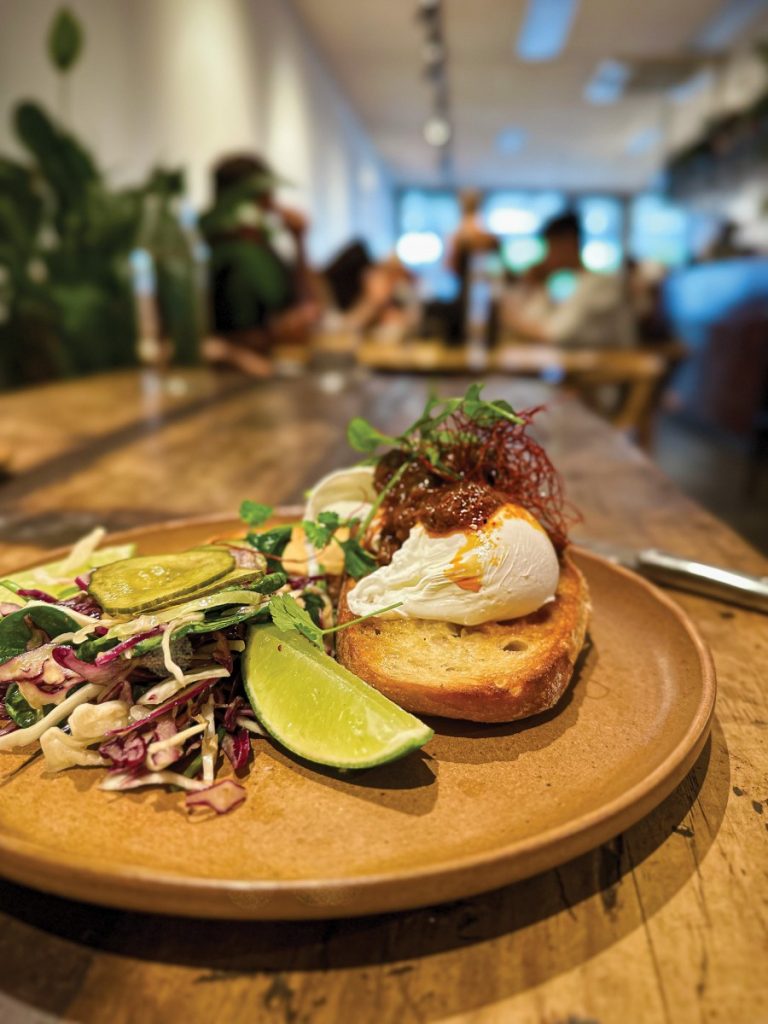
“That's how I create a menu. I think about what icon I would like to create, and then I build a supporting cast. If you look at the modern casting process it is sympathetic to cultural and geographical diversity and I feel the same about a menu.
“I can tell you where it comes from, my dad was primarily a painter. In school I learnt how to process the world through maths and science. Then I started to hang out with my dad a bit more, eating great food, drinking great wine, travelling the world, seeing cultures, paintings and art. The thing I came away with was that I really loved sculpture as an artform. And even from Caffiend, as my first one, I build cafes as a sculptural artform, which is incredibly intricate. You have multiple poetic layers of not just the space and how people use it, but also the intended purpose, efficiencies, menu, staffing choices; it all has to have cohesion. And of course an overarching story or idea,” he says.
“Caffiend in its original form was very much street, alleyway, skate, raw, organic, super rustic and central, almost bombastic and very full on. Whereas Guyala is open, clean, bright and maybe a little bit nautical.”
Over the last couple of years, Guyala has achieved some notable recognition. It has won awards from the Restaurant and Catering Association, including best in class and consumer awards. It has also been notably honoured with a national award and $10,000 from the Australian Mushroom Growers Association for its mushroom toast as a standalone dish.
“I used to avoid awards in Caffiend, because they bring unnecessary critique and take away an element of surprise,” Olly says.
“It's no secret that for me at the heart of hospitality is setting expectations and then exceeding them. If you don't meet the expectations of the customer then you end up disappointing them. Correspondingly, if you meet expectations customers are generally happy. But if you exceed expectations, you create a memorable experience. And to create memorable experiences we need to control and guide expectations, almost downplay them to help deliver a memorable experience through the opportunity to create that customer surprise.
“Winning awards takes away that element of surprise, customers have preconceptions that in fact dull their overall experience,” he says.
“(But) my view has changed on this, only in that it is great recognition for the team. I don't need the recognition, I'm confident that everything is delicious, not meaning to be arrogant, but it's not an accident, I don't doubt it. But for the team, they come to work for many different reasons and this is a way to recognise them and give them pride.”
Building the right team is vital to Olly. Staffing three very different venues is no small feat requiring some 25 to 30 people. He has a strong belief that the team comes first. His job is to look after the team and the team's job is to look after each other. Clearly, customer service is paramount, and he believes this supersedes the adage of the customer always being right. The customer can’t always be right, as it is important for the team to provide consistency. The largest variable is, after all, the customer.
This consistency in output is obvious as a key driver in another of the successful ventures Olly has established, the Tattooed Sailor roastery.

“I had reached my limit as a barista buying other people's roasted coffee. The limit was some economics of buying green beans, the flavour in the cup and consistency,” he says.
“If managing expectations of customers is one core principle of hospitality, then consistency and repeatability is the other. Quality is actually secondary to that, at least in terms of success, and McDonalds is perfect evidence of that. If you can absolutely combine consistency, repeatability and quality, then you in fact have a fantastic business model. It's not that hard!
“I had reached the limit with the roaster I was buying from, there were about a dozen in total all down the east coast. I had developed relationships with many of them, understanding the processes, where they sourced their green beans from and what their factories looked like. So when I made the decision to get a roaster myself I had a clear idea of what I wanted to achieve and what sort of beans I wanted to buy.
“It was, however, a trip to Ethiopia in 2015 that really pushed me over the line for getting a coffee roaster. This was an incredible and inspiring trip. I went to some very remote areas and was lucky to be guided by an incredible importer/exporter.
“I was inspired not just to roast coffee, but also by the humanitarian value for dollars spent,” Olly says. “To illustrate that point, I can buy a kilo of coffee from a local farm on the Tablelands, this will support this local business and local employees. However, if I buy the same kilo from an Ethiopian grower, that same dollar can support a village. As roasters we have become very conscious of where the money goes and I wanted to have more control of the flow of money back to the source, as we often do for food. I have very strong environmental, ethical and social values, they drive a lot of my business decisions.”
Olly's relationship with coffee is well developed, he has been judging in coffee competitions for over a decade. He was a judge at the world barista competition in Melbourne last year. There are regional and national heats every year at which he also judges. Being around some of the best baristas in the world as they compete not only keeps him informed, but also enthused about the national and global coffee industry.
Australia has long been considered advanced compared to the rest of the world. As a country it has some unique factors, not least that there is an appetite here for both innovation and deconstruction. That does not hold for the comparatively low standard developed for mass consumption in the United States, or the very staid tradition of continental Europe.
Tattooed Sailor Coffee can be found at a number of venues across the Far North as notable as Nu Nu in Palm Cove and as diverse as Shaylee Strawberry farm. Barista training is part of the repertoire of the Newell Street Cafe, part of the Oliver James group, which shares its residence with the Tattooed Sailor Roastery. His passing thought on coffee is simple: “it is very easy to make a bad cup of coffee and very hard to make a good one”. As such, those venues that carry Tattooed Sailor are expected to uphold the same standards as the group’s own outlets, all designed to reassure the customer that the all important consistency is a given.
It is easy to see how Olly’s philosophy, deep rooted in the excitement and love for food and drink, has permeated all of his businesses. The clarity of concept, the quality of output and the all important consistency are testament to his style of thoughtful and responsible ownership and management. But the proof of any pudding, or mushroom toast, is as they say, in the eating, and so to complete the narrative you should try for yourself. And at the risk of spoiling the surprise, we are confident you will be far from disappointed.
